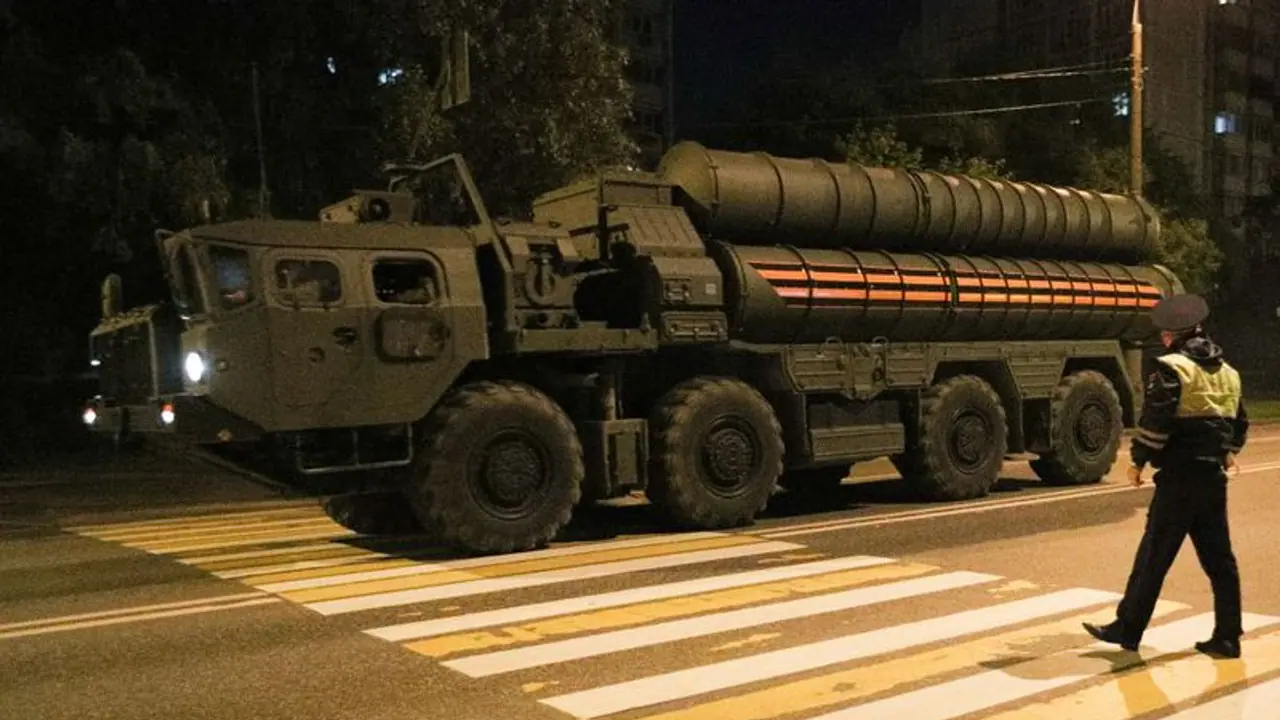Lt Gen Scott Berrier, Director, Defense Intelligence Agency, said India received its initial delivery of the Russian S-400 air defence system, and it plans to operate the system to defend against Pakistan and Chinese threats by June 2022.
India plans to deploy the S-400 missile defence system it received from Russia by June 2022 to defend itself against threats from Pakistan and China, following a Pentagon spymaster. During a congressional hearing, Lt Gen Scott Berrier, Director, Defense Intelligence Agency, told Senate Armed Services Committee members that India began receiving deliveries of the S-400 missile defence system from Russia in December last year. In addition, India's military was looking to acquire advanced surveillance equipment in October 2021 to fortify its land and maritime borders and improve its offensive and defensive cyber capabilities.

Berrier stated that India, in December, received its initial delivery of the Russian S-400 air defence system, and it plans to operate the system to defend against Pakistan and Chinese threats by June 2022.
Adding that India conducted many tests in 2021 and continues to evolve it's own hypersonic, ballistic, cruise, and air defence missile capabilities. India is boosting its use of space assets and has a growing number of satellites in orbit, indicating that it is pursuing offensive space capabilities.
Also read: European Union and US confirm 'unity' against Russia over Ukraine
Berrier informed lawmakers that New Delhi is investing heavily in air, ground, navy, and strategic nuclear capabilities, focusing on domestic defence manufacturing.
India is advancing its measures to establish Integrated Theatre Commands to improve its joint capability among its three military services.
Indian Prime Minister Narendra Modi, since 2019, has prioritised strengthening India's economy by increasing the country's domestic defence industry and establishing a negative import list to limit defence purchases from foreign suppliers.
Berrier informed the parliamentarians that India's long-standing defence partnership with Russia is still robust. In December, the two countries held their first '2 2' format discussions, a joint foreign and defence ministerial that India had previously only conducted with the US, Japan, and Australia. Adding that India has maintained its neutrality in the face of Russia's invasion of Ukraine and continues to appeal for peace, Berrier added.
Following Berrier, New Delhi maintained a foreign strategy to demonstrate India's place as a premier force and net security provider in the Indian Ocean area throughout 2021.
He added that India seeks strategic relationships to enhance influence through bilateral and multilateral platforms such as the Quadrilateral Security Dialogue and the Association of Southeast Asian Nations to foster prosperity and stability in the Indo-Pacific region.
"New Delhi aims to strengthen intelligence and operational collaboration on cybersecurity, protect important information infrastructure, prevent adversary public opinion manipulation, and develop standards and norms that preserve and secure data governance," he said.
Also read: 'Highly likely': Joe Biden warns of another attack on Kabul airport in 24-36 hours
About Afghanistan, Berrier stated that after the collapse of the Afghan government, India is more concerned about potential strikes on the country by terrorist organisations such as Lashkar-e-Taiba and Jaish-e-Mohammed, which a Taliban-controlled Afghanistan aids.
He added that the withdrawal of Indian forces from Afghanistan harmed the country's ability to monitor potential threats and exert influence over regional peace.
He added that despite recommitting to the 2003 ceasefire, India remains ready to respond to perceived militant threats, and counterterrorism operations in Kashmir have persisted. However, a high-profile attack in India by Pakistan-based terrorists threatens an Indian military response.
After tragic confrontations between their respective forces and the Western sector of the Line of Actual Control in summer 2020, Berrier stated that Chinese-Indian ties are still tight.
Adding that both the countries had many rounds of high-level diplomatic and military talks in 2021, culminating in a mutual withdrawal of soldiers from several stalemate points. Both sides, he stated, have close to 50,000 troops, artillery, tanks, and multiple rocket launchers and are building infrastructure along the LAC.
